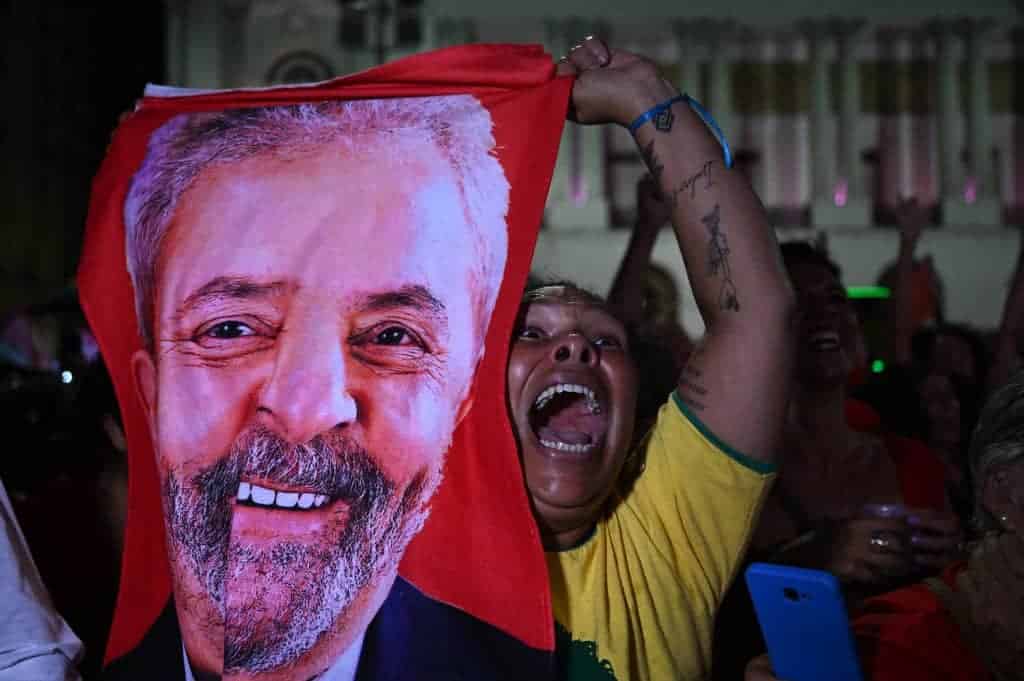The leftist former president Luiz Inácio Lula da Silva will return to power in Brazil for the third time after defeating the far-right Jair Bolsonaro in the ballot by a very narrow margin, reflecting an immense division in the South American giant.
The 77-year-old icon of the Latin American left won by 50.83% of the votes against 49.17% for the 67-year-old former army captain, with 98.8% of the votes counted.
The electoral evening was agonizing, as both candidates were neck and neck during the entire election.
The difference in votes is 1.9 million in favor of Lula, for a total of 156 million voters.
The outburst of jubilation on Sao Paulo’s emblematic Paulista Avenue, where thousands of Lula voters gathered, was immediate. “Brazil is getting back on the rails after four years of darkness, the population was feeling fear and going through a lot of problems,” said Larissa Meneses.
Bolsonaro has released mixed messages on whether he will recognize the results in case of defeat. On Friday he assured that he will: “Whoever has the most votes wins.” “It’s democracy.”
Lula, who governed Brazil from 2003 to 2010, has the support of the poorest and those who resented Bolsonaro’s policies and outbursts, such as young people, women and minorities.
He promised to “fix the country” still impacted by the pandemic crisis and its 688,000 deaths.
In his campaign he highlighted his socio-economic achievements, such as the emergence from poverty of more than 30 million Brazilians thanks to social initiatives financed by the commodities boom.
In this third term he will not have the same bonanza: although the economy shows signs of improvement, with growth, less inflation and more employment, it is far from the prosperity of the 2000s.
Nor will he have an easy time in Congress, where the conservatives are in the majority.
Lula returned to the political arena last year, after his convictions for corruption were overturned on procedural grounds. He had been imprisoned for 19 months, especially in the “Lava Jato” scandal about a bribery network in the state-owned Petrobras.
The campaign accentuated the polarization in the country, divided between a conservative movement and those with a progressive vision, in line with Brazil’s social diversity.
“For us, Lula’s return is very important, he tried to demarcate our lands, he had projects,” shaman Saha da Silva, of the Sateré-Mawé indigenous group, who voted in his community of Iranduba, 80 km from Manaus, capital of the Amazon, told AFP.
Bolsonaro, a former army captain, sought re-election by defending traditional values and the recent improvement in economic data – slowing inflation and falling unemployment – while continuing to instill a nationalist discourse.
A message especially appreciated by agribusiness and the evangelical population, which represents a third of the electorate and continues to expand throughout the country.
Brazil’s new president will take office on January 1.
Brian Winter, editor-in-chief of Americas Quarterly, predicted a “weak government” for Lula: “He will be under scrutiny from day one and will face a hostile Congress,” he said.






